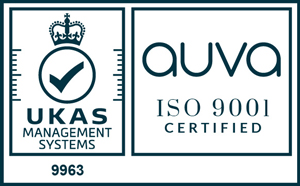Is the Hype About Carbon Reduction from Solar Panels for Commercial Vehicles a Lie?
When discussing solar energy’s role in commercial vehicles, the focus often gravitates towards carbon reduction and environmental impact. While it’s undeniable that renewable energy solutions are contributing to a greener future, the carbon reduction aspect might not be the primary driver for fitting solar panels to commercial vehicles. This article explains why solar for commercial vehicles isn’t always about carbon reduction and explores other reasons that make transport solar a sound strategic investment.
Battery Maintenance Versus Autonomous Power
There are two approaches to managing power with solar energy.
Trickle charging involves a low-level flow of power to maintain batteries over an extended period. This approach is typically used to keep batteries at full capacity, ensuring they’re ready for use when needed but doesn’t generate sufficient power for primary energy needs.
In contrast, autonomous power generation with solar energy entails directly powering a battery independently, reducing or eliminating the need for batteries altogether.
In the case of autonomous power generation, the environmental benefit is obvious since the power generation is diverted from fossil fuel to an entirely renewable source. However, all too often solar suppliers are promising fuel and CO2 savings from trickle charge systems. Whilst yes there can be a reduction in fuel usage and therefore CO2, the amount is likely to be minimal. So, what are the actual benefits of trickle charge solar installations?
At Genie Insights, the majority of trickle charge systems we supply are primarily about battery maintenance. We’ll look at two of our best-selling examples below.
Battery Health & Longevity
Our solar solution for transport refrigeration units continuously tops up the battery level (during daylight hours) which preserves battery health and extends overall lifespan. This safeguarding of the battery’s health leads to elimination of flat batteries, costly breakdowns and improved vehicle reliability – challenges that have plagued the refrigerated transport sector since the introduction of newer technologies that take a draw from the battery such as telematics.
Whilst this does not provide a significant CO2 saving, it does give a secondary environmental benefit due to fewer batteries being required over the lifetime of the fridge.
Critical Accessibility
Another example is the incorporation of a solar panel onto electric vans to serve as a crucial supplementary power source, primarily ensuring the uninterrupted access and functionality of the vehicle. The 12-volt battery in electric vans is used in critical functions such as unlocking the van and powering various onboard systems. However, if this battery goes flat, it can lead to an inconvenient and compromising situation where the van becomes inaccessible – the van cannot even be unlocked! By adding a solar panel, the 12-volt battery is trickle charged, reducing the risk of it becoming depleted. In this scenario, it is unlikely that there is any significant carbon reducing effect of the solar panel.
Therefore, while carbon reduction is achievable in some solar applications, the modest savings in a trickle charge application doesn’t warrant the hype that is sometimes advertised. Instead, the very real operational benefits related to battery health are a much more honest and attractive proposition.
If your fleet faces either of these operational challenges, please contact us to find out how Genie Insights’ solar solutions can improve the reliability of your fleet.


